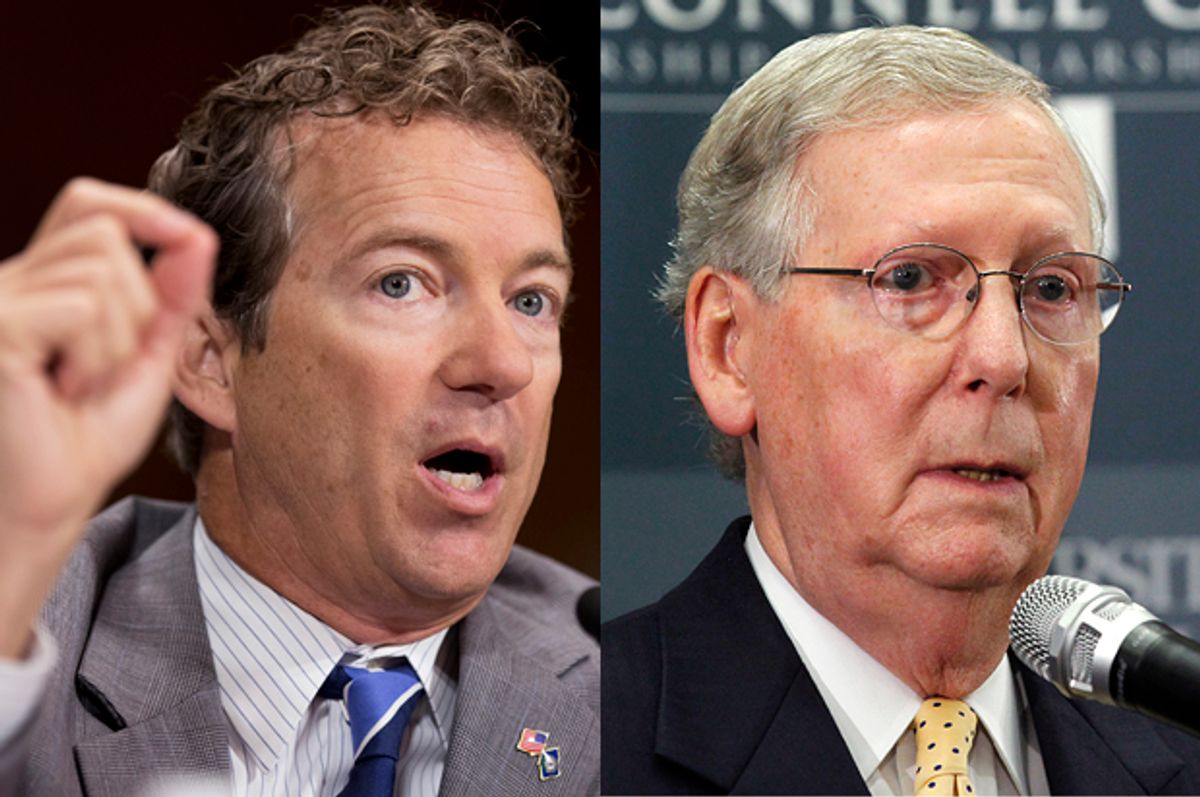Vermont Sen. Patrick Leahy's USA Freedom Act, a proposal to end the National Security Agency's bulk collection of Americans' phone calls, came just short of the 60-vote threshold required to overcome a filibuster last night, with the chamber voting 58 to 42 to take up the legislation.
With the exception of Sen. Bill Nelson of Florida, the Democratic caucus was united in its support for considering the bill. Meanwhile, Republican Sens. Ted Cruz of Texas, Dean Heller of Nevada, Mike Lee of Utah, and Lisa Murkowski of Alaska broke ranks with the GOP and voted to take up the bill.
The legislation's death followed a concerted conservative campaign against it, with opponents like incoming Senate Majority Leader Mitch McConnell employing alarmist rhetoric to attack Leahy's bill as a boon for terrorists.
“If our aim is to degrade and destroy [the Islamic State militant group, also known as ISIS], as the president has said, then that’s going to require smart policies and firm determination,” McConnell declared. “At a minimum, we shouldn’t be doing anything to make the situation worse. Yet that’s just what this bill would do.”
McConnell's remarks echoed a Wall Street Journal Op-Ed by former NSA and CIA head Michael Hayden and George W. Bush-era Attorney General Michael Mukasey. The piece's title? "NSA Reform That Only ISIS Could Love."
Though GOP opposition to the bill stemmed primarily from national security hawks, Kentucky Sen. Rand Paul, who fashions himself a civil libertarian, also opposed taking up the measure. But whereas his home-state colleague McConnell opposed the legislation for making changes he asserted were too sweeping, Paul argued that Leahy's bill didn't go far enough. Paul, a long-standing opponent of the Patriot Act, cited a provision in the bill that would have extended the ability of the NSA to comb through Americans' phone records under the Patriot Act.
After the vote, though, Paul said he "felt bad" about contributing to the USA Freedom Act's death. “They probably needed my vote,” he said. “It’s hard for me to vote for something I object to so much." While the vote illustrated the persistent divide between GOP hawks and more libertarian types, the overwhelming GOP opposition to taking up the measure underscores that the hawks maintain the upper hand. Moreover, the new crop of GOP senators taking office in January is heavy on members -- like Iowa's Joni Ernst -- who are associated with the party's hawkish wing.

Shares